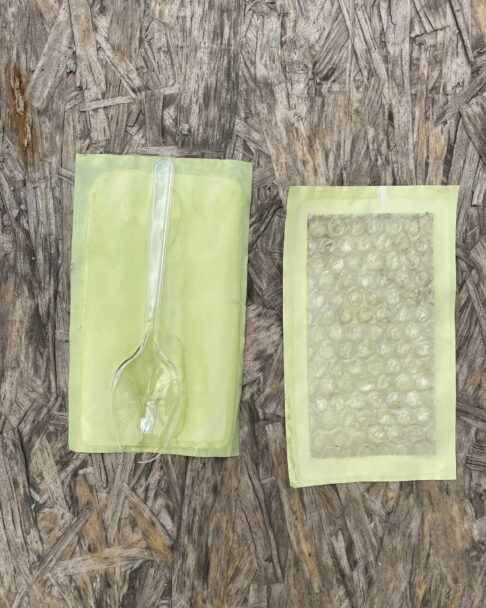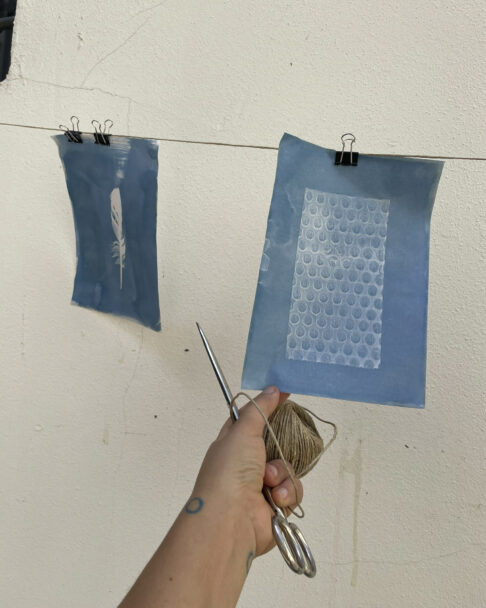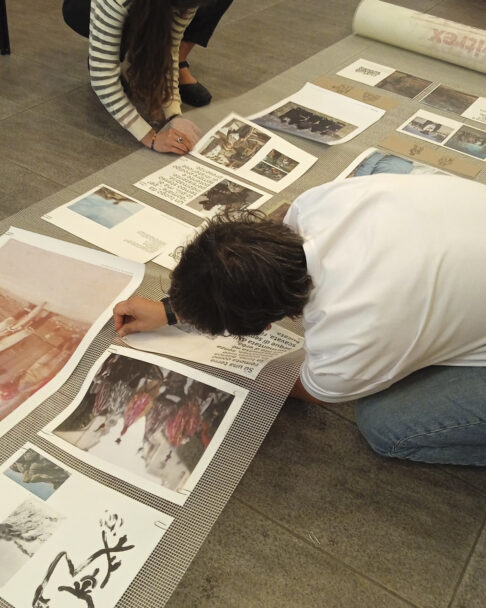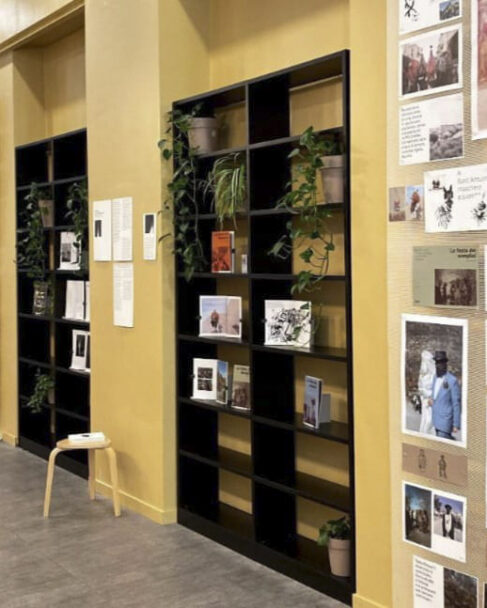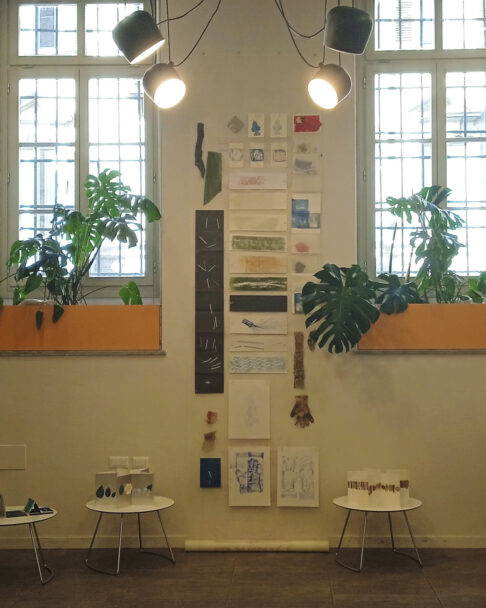May 2024
Perfect, but purely by chance – ZicZic editions
Folklore research, the representation of the rural landscape of Southern Italy as an alternative to the clichéd tourist narrative of the Bel Paese, held together by a gatherer’s attitude inspired by the Trash Printing workshops-tales of a place through the printing of the scraps one encounters-that they have been carrying out for a few years now in the most diverse contexts are the thread that holds together the in-progress exhibition dedicated to some of the most significant works of ZicZic edizioni, a small independent publishing house in Polignano a Mare and curated by Lilia Angela Cavallo and Silvia Tarantini.
The exhibition is focused on the research process and behind-the-scenes of the series La festa dei Semplici and the volume Agro, compared with the Atlanti Babelici, 5 artist’s books that unfold 5 possible horizons of the city of Bari inspired by the words body, sea, land, movement and air, and will be complemented by a Trash Printing workshop on Saturday 11, in which a series of cyanotypes will be collectively made, a new “city tale” resulting from the collection of what was found in the streets around the Polo del ‘900 and the Valdocco Palestro market.
In dialogue with the exhibition part, a display of ziczic’s editorial publications, distributed among the furniture of Salotto del ‘900.
ZicZic edizioni deals with self-published micro-publishing and has as its main line of research and publication the narration of places, landscapes and stories with unpublished languages and handcrafted media. “zic-zic” is a dialect way of saying, meaning “perfect, but by pure chance,” a perfect motto for a workshop-based publishing practice that puts teamwork, the importance of encounter and a dash of randomness at the center of its research, triggering relational processes and work from what is at hand.
If the Atlanti Babelici see multiple techniques of composition and printing coexisting together with remnants and remnants of found objects, in a game of stitching, decomposition and reassembly of traces recorded and then reassembled giving them new form and sequence, Agro tells the territory of Polignano from a different point of view, putting his back to the sea and turning his gaze inland, crossing districts, small hamlets, traveling along blades and paths, there where the carnivals of Aliano, Teana and Alessandria del Carretto, the first three volumes in the series La festa dei Semplici, speak through photographs, illustrations and short stories of “covered faces, wild creatures and predictable doom,” of festivals, in Basilicata, where instead of Venetian violets there are flutes and cupa-cupa, and at most a few accordions, of a small Calabrian village depicted in 1959 by Vittorio De seta in the documentary “The Forgotten Ones,” animated every Sunday between Candlemas and Shrove Tuesday by the staging of a clash between “beautiful” Punchinello and “ugly” Punchinello: a real ritual battle between spring and winter, day and night, good and evil, perhaps what remains of the ancient struggles fought by shepherds and peasants against witches and demons.
Ancient and modern rituals that function as a mirror of an idea of territory understood as that which gives birth to realities, cultures and stories and finds in “micro-publishing” a means of sharing and dissemination that combines low print runs with a craft culture that gives birth to complex, but not complicated productions, seen not so much as a point of arrival, but stages of a broader path of research.
The grafting of images of carnivals linked to ancestral traditions, of alternative forms of publishing practices and representation of the rural and urban landscape confronted with works inspired by objects found in Turin’s reality create a positive short circuit that, through artistic practices and “weak links,” invites us to reflect on social rituals that are revealed in their everydayness and repetition and on articulated and complex cultural roots that emerge in the attention to habitual gestures and unusual collective representations.
On Friday 10 at 6.30 pm Lilia Angela Cavallo and Silvia Tarantini, in dialogue with Chiara Capodici, present the stories of the projects on display and the many other adventures of ziczic.
On Saturday 11, the workshop starts with a tour of research and collect near the Pole,
after an introductory meeting time at 11 am. Return scheduled at 1 pm.
After a short lunch break, around 2 pm a first phase of experimentation with the collected material, continues with the cyanotype workshop to end around 5 pm with a moment of collective setting up to complement the exhibition set up in the ‘900 living room.
ziczic is a social promotion association curated by Lilia Angela Cavallo and Silvia Tarantini in July 2017 with the intent to promote the culture of books, graphic and illustrated art, with particular attention to the world of typography and artisanal printing methodologies, through the programming of events, exhibitions, workshops and laboratories.
ziczic is a studio for the conception, printing and packaging of editorial artifacts, a place open to authors, enthusiasts* and curios* who want to try their hand at creating a printed product.
Books selection
By Chiara Capodici - Leporello
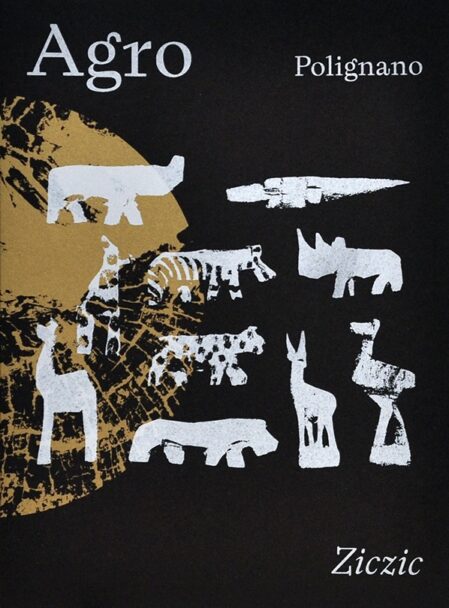
A.A.V.V.,
Agro,
2018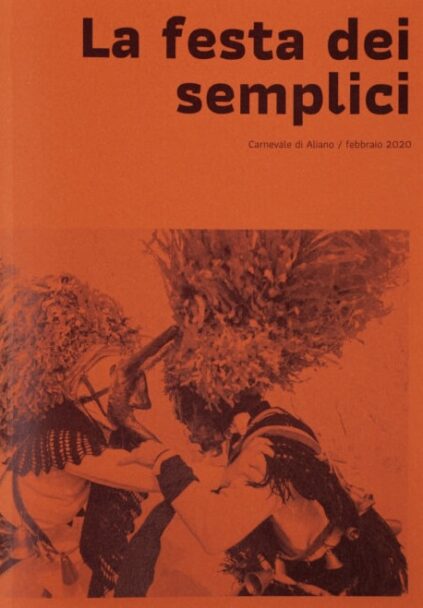
A.A.V.V.,
La festa dei semplici– Carnevale di Aliano,
2020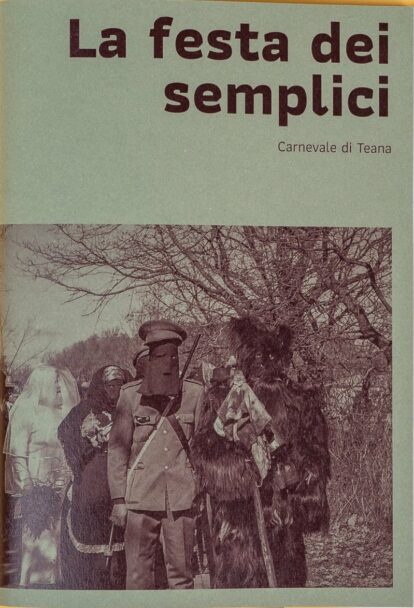
A.A.V.,
La festa dei semplici – Carnevale di Teana,
2023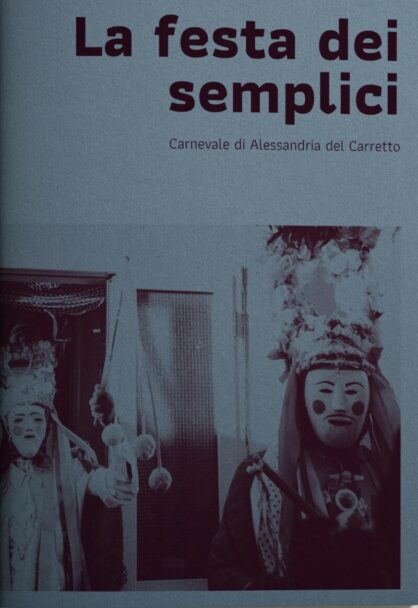
A.A.V.V.,
la festa dei semplici – Carnevale di Alessandria del Carretto,
2023Hours and Infos
Exhibition opening and book display
Saturday, May 11, 11 am - 17 pm
Trashprinting - cyanotype waste printing workshop
Polo del ‘900 – Palazzo San Daniele
Piazzetta Antonicelli, ingresso da via del Carmine 14, Torino
